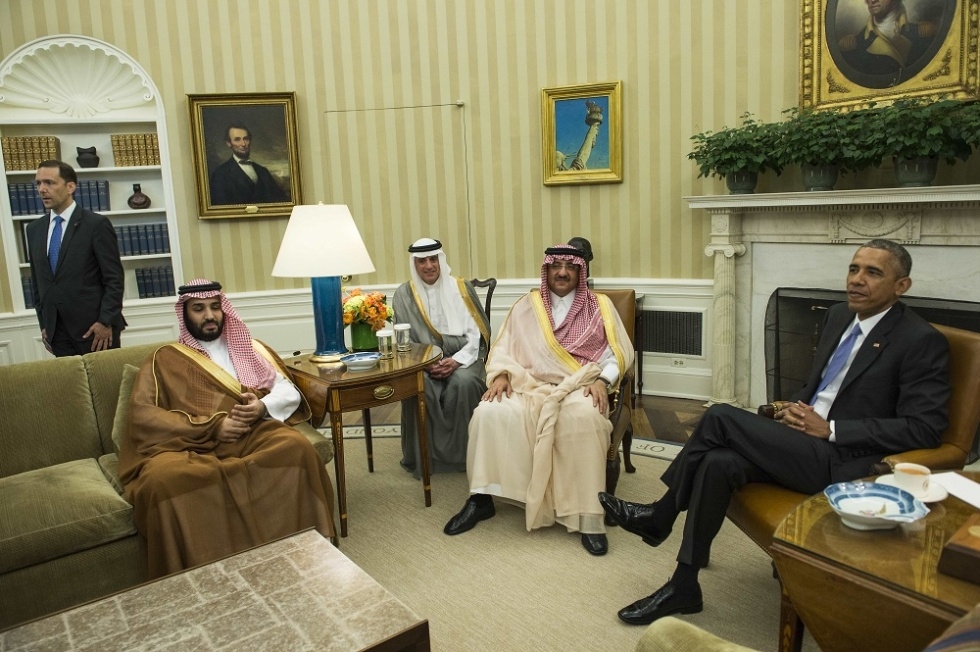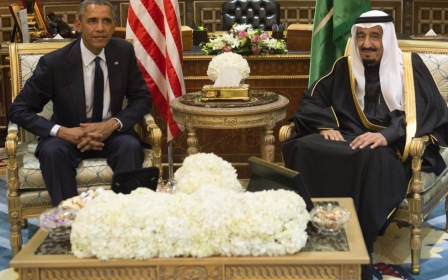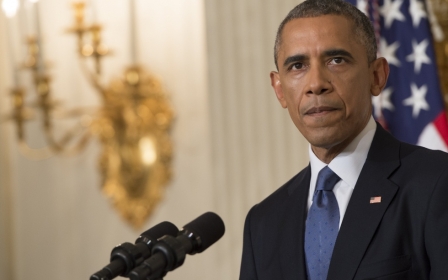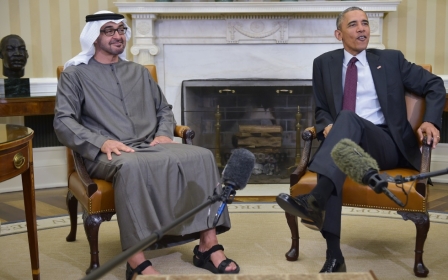ANALYSIS: Obama bids to mend fences with Gulf royals at Camp David

By Andrew Beatty
Barack Obama will whisk six Gulf leaders away to his Camp David presidential retreat Thursday, hoping to salvage a fence-mending summit already bedeviled by disagreements and royal no-shows.
The bucolic Catoctin Mountain getaway, synonymous with Middle East peacemaking during the presidencies of Jimmy Carter and Bill Clinton, will again be a venue for attempts at reconciliation.
President Obama faces a tough task of convincing assorted emirs, princes and sheikhs that his willingness to negotiate with Iran does not represent a pivot away from long-standing allies.
As a precursor to the meeting, Obama on Wednesday wooed two powerful Saudi princes to the Oval Office, where he lauded "an extraordinary friendship and relationship that dates back to Franklin Roosevelt and King Faisal," in the 1940s.
"We are continuing to build that relationship during a very challenging time," Obama said, a nod to conflagrations in Yemen, Syria and Iraq that have reverberated across the Middle East.
Obama praised guests Crown Prince Mohammed bin Nayef and Deputy Crown Prince Mohammed bin Salman for their work on counterterrorism, which the US president described as "absolutely critical" to the United States.
But conspicuous in his absence at the White House was Saudi leader King Salman, who refused to attend, in what was widely seen as a diplomatic snub, despite Riyadh's and Washington's insistence it was not.
Five other Gulf leaders - but only two heads of state, from Qatar and Kuwait - later arrived at the White House for a closed-door dinner and will also travel to Camp David.
Obama's warm words belied deep malaise over Iran, in a relationship already strained by his perceived quickness to welcome democratic Arab Spring revolts and a reduced dependence on Gulf oil.
The Arab and largely Sunni Muslim states suspect Obama's nuclear deal with Tehran is a harbinger of a bigger role for their Persian and Shiite arch-foe.
The Gulf states will be seeking assurances from Obama that he is ready to push back against Iranian proxies, particularly in Syria where Obama has been reluctant to act, even if it causes turbulence in sensitive nuclear talks.
They will also want assurances the nuclear deal does not represent a broader "grand bargain" with Iran.
'Tilt' towards Tehran?
"What they fear, above all, is that, for one reason or another, American policy is beginning to tilt towards Tehran and away from traditional US allies in the region," said Hussein Ibish of the Arab Gulf States Institute.
Despite close ties stretching back decades, ultra-conservative Gulf monarchies and a country which brought the world 'Baywatch' have never been easy allies.
Interests have often trumped ideology.
In 1980, in the wake of a crippling oil shock precipitated by Iran's Islamic Revolution, President Carter pledged to come to the defense of vital oil-producing Gulf states.
That policy was made manifest a decade later when president George Bush senior sent troops to Kuwait when it was invaded by Saddam Hussein's Iraq.
Today the US fifth fleet is based in Bahrain and a US military command center with substantial troops is stationed in Qatar.
But the Gulf states are now asking for the "Carter Doctrine" to be more than a "gentlemen's agreement".
With one eye on the $100 bn-plus windfall that Iran could receive when sanctions end and accounts are unfrozen, they would like to see a binding mutual defense treaty like that agreed between NATO members.
Such a pact would be difficult to pass through a pro-Israeli Congress, but in any case it is a non-starter for the White House, which sees asymmetric threats and internal unease at closed political systems as a greater security priority.
With reduced attendance and hoped-for deals on security and the sale of advanced US weapons like the F-35 stealth fighter in doubt, Obama will have to scramble to salvage the summit.
Officials will likely push for progress on ballistic missile defense, joint military exercises and cyber and maritime security initiatives.
New MEE newsletter: Jerusalem Dispatch
Sign up to get the latest insights and analysis on Israel-Palestine, alongside Turkey Unpacked and other MEE newsletters
Middle East Eye delivers independent and unrivalled coverage and analysis of the Middle East, North Africa and beyond. To learn more about republishing this content and the associated fees, please fill out this form. More about MEE can be found here.




